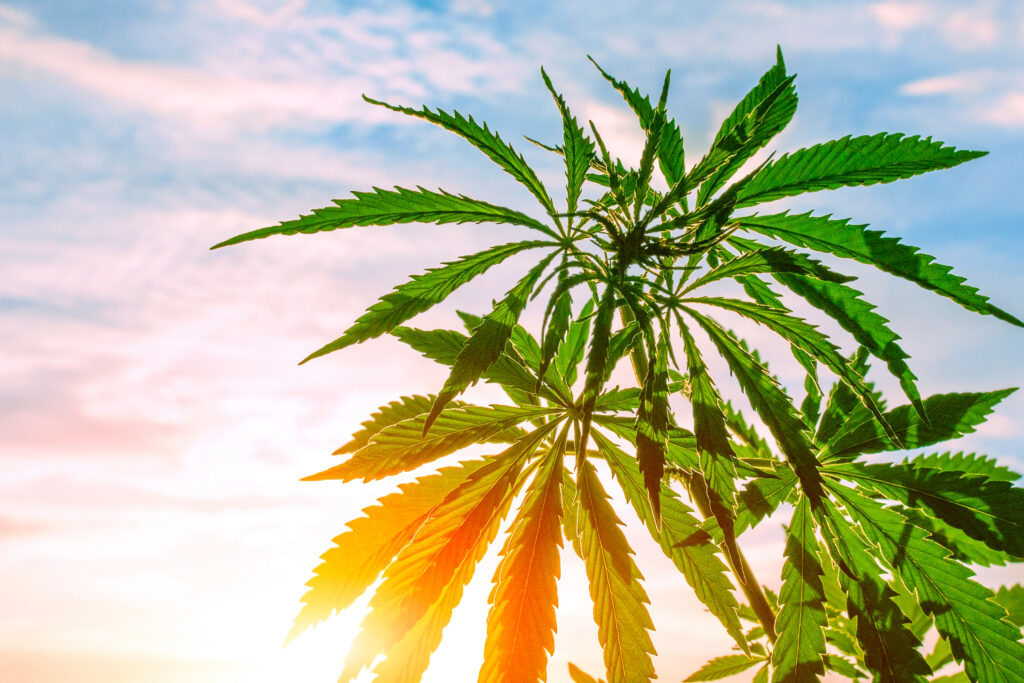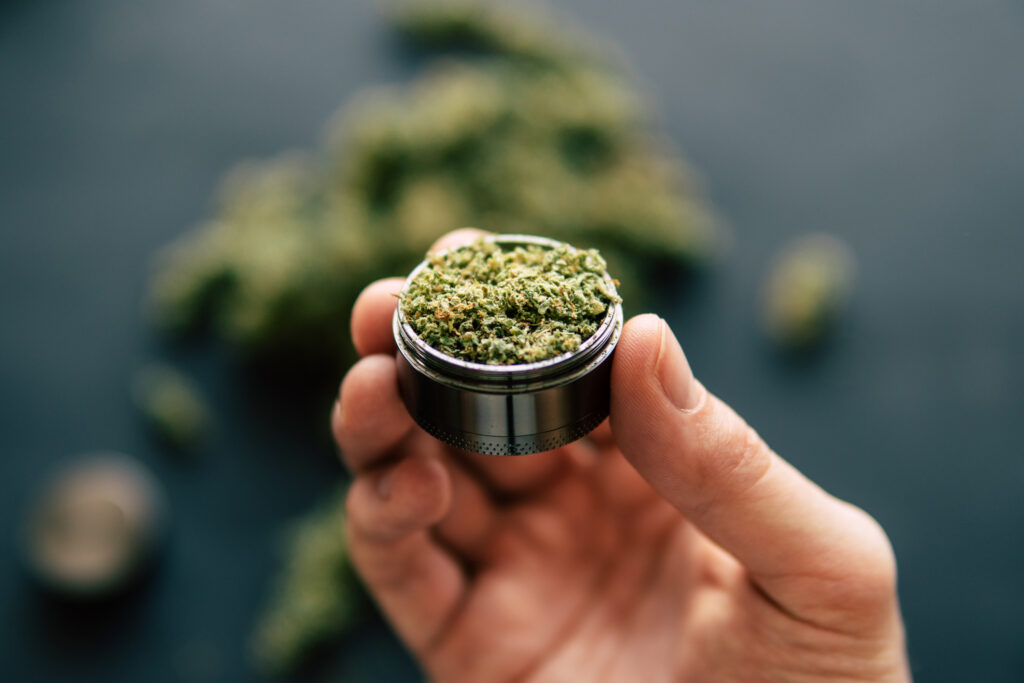
Brain fog, zoning out, feeling restless and forgetful… Sound familiar? These are some of the most common symptoms associated with attention deficit hyperactivity disorder (ADHD).
Individuals with ADHD are more likely to use cannabis — perhaps to self-medicate their symptoms or even reduce their medication’s side effects. But does it work? Could cannabis have beneficial effects on ADHD? Is there cannabis research and risks for ADHD?
What is ADHD?
ADHD is a neurological condition that’s classified into three different types:
- Predominantly inattentive
- Predominantly hyperactive or impulsive
- Combination of one and two
Although ADD and ADHD were once classified as two separate conditions, the Diagnostic and Statistical Manual of Mental Disorders (DSM) IV combined them into one.
ADHD is often diagnosed during childhood because the symptoms typically begin before the age of 12. However, there has been a rise in adult ADHD diagnoses.
The symptoms and diagnostic criteria in the DSM V for ADHD include:
- Inattentive ADHD:
- Regularly fails to pay close attention to details and makes careless mistakes at work, school, or during other activities.
- Regularly has trouble holding their attention on tasks or during playtime.
- Regularly does not appear as if they’re listening when spoken to directly.
- Regularly does not finish their schoolwork, chores, or workplace responsibilities and does not seem to fully follow through with the instructions.
- Regularly has trouble with organizing their responsibilities and activities.
- Regularly avoids, hesitates, and dislikes activities/tasks that require prolonged focus and mental effort for extended periods of time.
- Regularly loses objects needed for daily work and activities (pencils, homework, car keys, wallets, books, tools, etc…).
- Is easily distracted on a regular basis.
- Is forgetful during routine activities on a daily basis.
- Hyperactivity & Impulsivity
- Regularly squirms in their seat or fidgets with their hands and/or feet.
- Is often restless.
- Is regularly unable to quietly engage in leisure activities.
- Often appears “on the go” or as if they’re “driven by a motor.”
- Regularly talks excessively.
- Regularly blurts out the answer during class, meetings, or conversations before the other individual has finished speaking.
- Regularly has trouble waiting their turn.
- Regularly interrupts or intrudes on others’ conversations and activities.
Positive Effects of Cannabis on ADHD

There are many journal reviews on cannabis and ADHD. Still, only a handful of controlled clinical trials on the topic have been published.
In one clinical study, 30 adults with ADHD were given Sativex Oromucosal Spray, which is a prescription medication based on Δ9-THC and CBD isolates. The participants were given a dosing diary to rate their experiences as well as any potential side effects from the spray throughout the duration of the trial.
The researchers assessed the participants’ cognitive performance, behavioral symptoms, activity levels, and mood. The QbTest the researchers used to measure the participants’ cognitive performance didn’t show any statistically significant differences between the active and the placebo groups. Though, the authors say that their performance did not get any worse, either.
Additionally, the authors state the active group had “nominally significant” improvements in hyperactivity and impulsivity. They also say this group experienced “trends towards improvements” in inattention and emotional stability.
However, two adverse effects were reported during the study. One participant in the active group had “muscular seizures/spasms” and stopped taking the medication. Another participant in the placebo group also experienced chest tightness and an increased heart rate.
In another study, 1,738 students with ADHD completed a survey about their cannabis use, ADHD symptoms, the perceived effects of cannabis on ADHD, and their medication side effects.
But of the 1,738 students recruited for the study, only about 13 percent of them had actually been diagnosed with ADHD — the remainder had self-reported experiencing ADHD symptoms.
Overall, roughly 92 percent of the participants said cannabis use improved their symptoms of ADHD. Specifically, the majority reported that cannabis use improves their hyperactivity, restlessness, and mental frustration.
The overwhelming majority of participants also said that cannabis use improves the following symptoms of their ADHD medication:
- Loss of appetite — 89 percent reported improvements
- Sleeping problems — 67 percent reported improvements
- Moodiness or irritability — 53 percent reported improvements
- Anxiety — 47 percent reported improvements
This study largely demonstrates that individuals with ADHD may seek cannabis as a form of self-medicating to reduce their symptoms or medication side effects. It also indicates that these individuals perceive more beneficial effects than negative effects of cannabis on their condition.
But that doesn’t entirely rule out the potential adverse effects of cannabis on ADHD, either.
Negative Effects of Cannabis on ADHD
In the same self-report study mentioned above, most participants said cannabis use worsens their inattention and memory. Fourteen percent of participants also said cannabis worsens the dizziness caused by their medication, and 15 percent said it worsens the anxiety from their medication.
Furthermore, substance use disorders are one of the most common comorbidities with ADHD — and that isn’t just exclusive to cannabis. This can include trouble regulating alcohol consumption or becoming dependent on other substances, such as nicotine or cocaine.
Thus, individuals with ADHD are at an increased risk of developing cannabis use disorder. While you can’t be physically dependent on cannabis in the same way that one could be dependent on alcohol or opioids, individuals can develop a psychological dependence on cannabis.
Physical dependence on a substance can cause severe withdrawal symptoms, preventing individuals from being able to just quit cold turkey, as the symptoms could become life-threatening. Psychological dependence may cause severe emotional distress when trying to quit or wean off a substance.
Cannabis use disorder is associated with a psychological dependence on cannabis, not a physical one.
One study found that ADHD is “highly prevalent” among patients seeking treatment for cannabis use disorder. The authors estimate between 34 to 45 percent of patients with cannabis use disorder also have ADHD.
Cannabis use disorder is a significant concern, especially among those with ADHD. However, there are resources available for those who feel their cannabis use is disrupting their personal and professional lives.
Will Cannabis Ever Be Prescribed for ADHD?
Currently, a small handful of healthcare providers in the United States recommend using cannabis to treat ADHD. This is not the case among all psychiatrists or neurologists, though.
As a whole, cannabis generally isn’t prescribed by a doctor. Even in medical cannabis states, doctors are typically only able to certify you for your medical marijuana card. It is then up to you to go to dispensaries and determine which products work best for you.
In some states, dispensaries also have a pharmacist on standby to help consult patients on which products make the most sense for their symptoms and condition(s).
There are some exceptions to this rule. For example, a few cannabinoid-derived prescription medications are currently on the market, including Epidiolex®, Marinol, and Sativex. These medications are often prescribed to treat epilepsy, chemotherapy side effects, neuropathic pain, and multiple sclerosis.
Key Takeaways: Cannabis May Help Reduce Hyperactivity and Impulsivity
Individuals with ADHD are more likely to use cannabis. In one clinical trial using Sativex, researchers found that cannabis may reduce the hyperactivity and impulsivity associated with ADHD.
Likewise, individuals with ADHD self-reported in another study that cannabis improved their hyperactivity and impulsivity. It also helps reduce certain side effects of their ADHD medication, such as loss of appetite, sleep disturbance, irritability, and anxiety.
However, individuals in this study also reported that cannabis worsens their inattention and memory. There is also reasonable concern surrounding the increased risk of developing cannabis use disorder among individuals with ADHD.
At the end of the day, every individual is different. While some individuals may find cannabis widely beneficial for their ADHD symptoms, others may find it worsens specific aspects of ADHD. You know your body best. And if you find that your cannabis use is causing disturbances in your personal and professional life, there are resources available to help.
References
- Magnus, W., Nazir, S., Anilkumar, A. C., & Shaban, K. (2022, May 8). Attention Deficit Hyperactivity Disorder. Stat Pearls. https://www.ncbi.nlm.nih.gov/books/NBK441838/
- Centers for Disease Control and Prevention. (2020, September 21). Symptoms and Diagnosis of ADHD | CDC. https://www.cdc.gov/ncbddd/adhd/diagnosis.html
- Cooper, R. E., Williams, E., Seegobin, S., Tye, C., Kuntsi, J., & Asherson, P. (2017). Cannabinoids in attention-deficit/hyperactivity disorder: A randomised-controlled trial. European Neuropsychopharmacology, 27(8), 795–808. https://doi.org/10.1016/j.euroneuro.2017.05.005
- Stueber, A., & Cuttler, C. (2021). Self-Reported Effects of Cannabis on ADHD Symptoms, ADHD Medication Side Effects, and ADHD-Related Executive Dysfunction. Journal of Attention Disorders, 26(6), 942–955. https://doi.org/10.1177/10870547211050949
- Stueber, A., & Cuttler, C. (2021b). Self-Reported Effects of Cannabis on ADHD Symptoms, ADHD Medication Side Effects, and ADHD-Related Executive Dysfunction. Journal of Attention Disorders. https://doi.org/10.1177/10870547211050949
- Notzon, D. P., Pavlicova, M., Glass, A., Mariani, J. J., Mahony, A. L., Brooks, D. J., & Levin, F. R. (2016). ADHD Is Highly Prevalent in Patients Seeking Treatment for Cannabis Use Disorders. Journal of Attention Disorders, 24(11), 1487–1492. https://doi.org/10.1177/1087054716640109